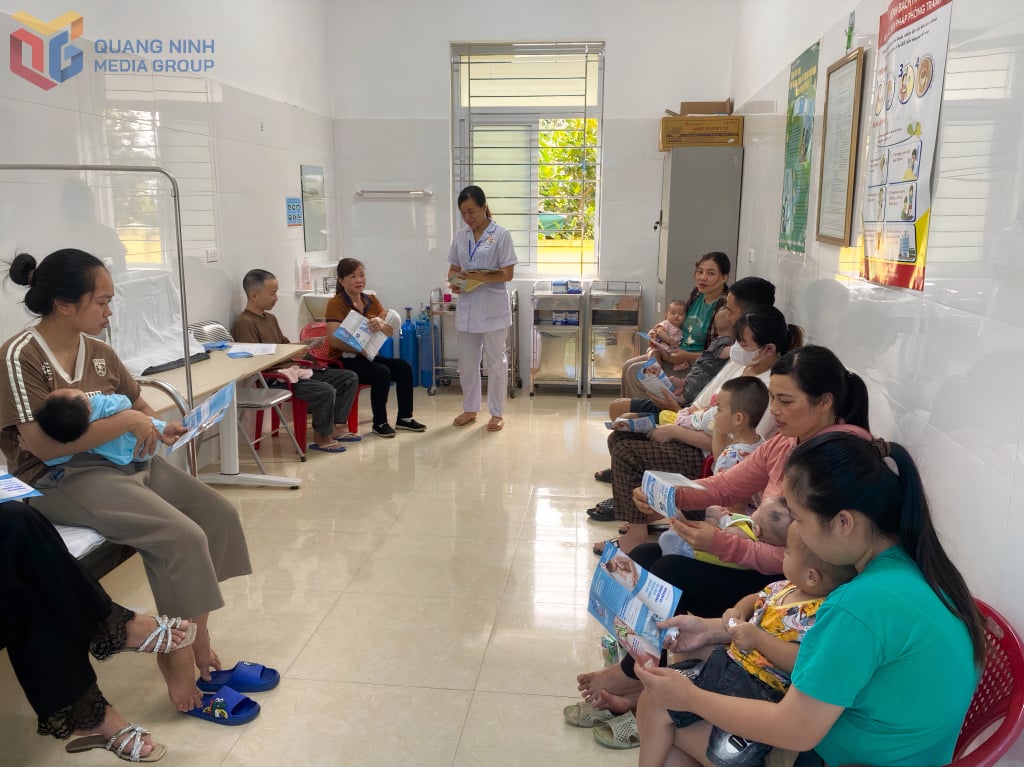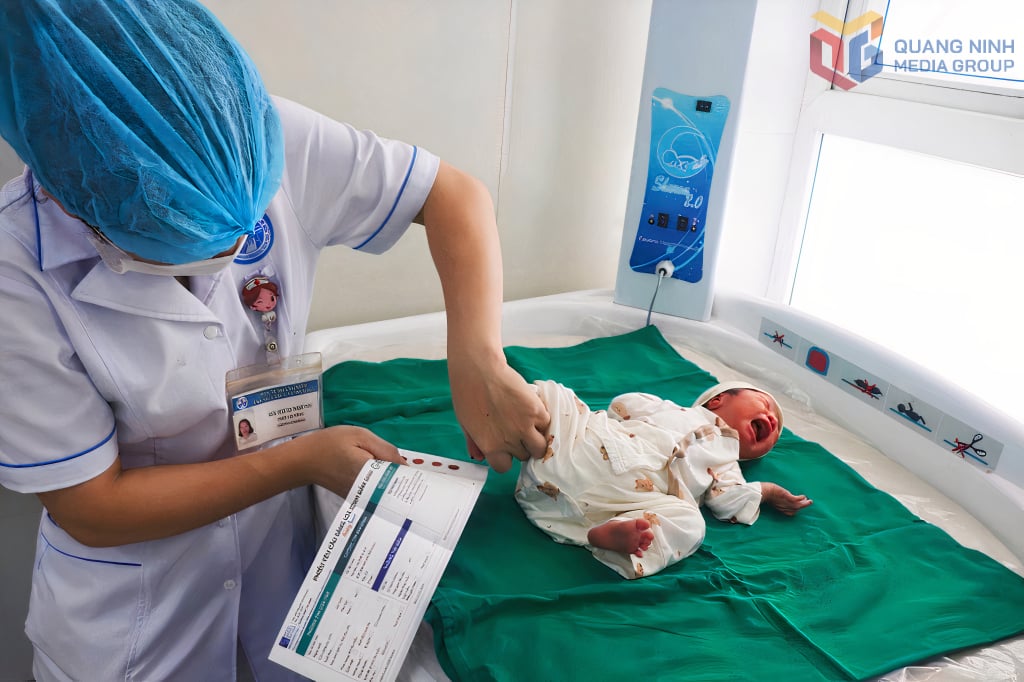young right from the time she was in her mother's womb Through prenatal and newborn screening methods, potential birth defects can be prevented.

Prenatal screening involves using specific diagnostic methods during pregnancy to identify cases of chromosomal genetic disorders in the fetus, such as Down syndrome, Edwards syndrome, neural tube defects, etc. Newborn screening, on the other hand, is a modern preventive measure using medical techniques to detect endocrine disorders and genetic disorders while the child is still in the womb or immediately after birth, allowing for the detection of certain congenital diseases and defects.
According to the Population and Newborn Department (Department of Health), prenatal and newborn screening is crucial for diagnosing genetic disorders. This allows for timely diagnosis and counseling for mothers, enabling early intervention and treatment of abnormalities in children, thus mitigating the severe consequences of birth defects. Therefore, the department places great emphasis on raising awareness about this issue, considering it a vital task in improving population quality. Pregnant mothers should thoroughly understand pregnancy-related knowledge and the screening process from conception to birth.
The Provincial Obstetrics and Pediatrics Hospital is one of the leading specialized units in prenatal and neonatal diagnosis and screening. In addition to investing in modern equipment for fetal anomaly screening, such as 4D ultrasound machines, two-plane digital subtraction angiography (DSA) systems, prenatal and neonatal screening systems, genetic testing systems, and molecular medicine, the hospital also focuses on improving the skills and professional qualifications of its doctors and medical staff. Since July 2018, the Provincial Obstetrics and Pediatrics Hospital has established a Pediatric Cardiology Unit, successfully implementing many highly effective prenatal and neonatal screening techniques, such as: Double test and Triple test; amniocentesis; non-invasive prenatal screening (NIPT); and testing for Alpha-Betha Thalassemia genes using PCR-RFLP techniques… This allows for the timely detection of congenital fetal abnormalities, ensuring that children are born healthy and develop normally.
Currently, the rate of pregnant women in the province undergoing prenatal screening is nearly 99%; over 75% are screened for at least 4 common congenital diseases. For newborns, the screening rate is nearly 80%, far exceeding the national target. Notably, up to 74.43% of children are screened for at least 5 dangerous congenital diseases, aiming for proactive disease prevention in young children.

Experts and medical professionals all affirm that pre-marital reproductive health check-ups are one of the first and most important forms of screening in improving the quality of the population. Pre-marital reproductive health screenings offer benefits in preventing, detecting, and treating many dangerous diseases early, as well as avoiding undesirable consequences in married life and the future of generations to come.
The Population Department has intensified communication and education efforts to raise awareness and change people's behavior regarding pre-marital counseling and health check-ups. Since 2011, the "Pre-marital Counseling and Health Check-up" club model has been implemented, providing knowledge about pre-marital reproductive health, safe contraception methods, prevention and treatment of gynecological diseases, prevention and treatment of infertility, and safe motherhood...
In the first six months of 2025, the number of couples receiving pre-marital health counseling reached 99.2%, and the number of couples undergoing pre-marital health check-ups reached 91%. This shows that each couple has become aware of the importance of pre-marital counseling and health check-ups, thereby contributing to ensuring the birth of healthy children and maintaining the structure and quality of the population.
Source: https://baoquangninh.vn/de-tre-ra-doi-khoe-manh-3366079.html






























































































![OCOP during Tet season: [Article 4] Elevating local products](/_next/image?url=https%3A%2F%2Fvphoto.vietnam.vn%2Fthumb%2F402x226%2Fvietnam%2Fresource%2FIMAGE%2F2026%2F01%2F29%2F1769652810578_2935-z6982071462129_649e82db06fb2f2ea701388b1f5f5b0b-173322_176-185229-202804_457.jpeg&w=3840&q=75)



![OCOP during Tet season: [Part 3] Ultra-thin rice paper takes off.](/_next/image?url=https%3A%2F%2Fvphoto.vietnam.vn%2Fthumb%2F402x226%2Fvietnam%2Fresource%2FIMAGE%2F2026%2F01%2F28%2F1769562783429_004-194121_651-081010.jpeg&w=3840&q=75)

![OCOP during Tet season: [Part 2] Hoa Thanh incense village glows red.](/_next/image?url=https%3A%2F%2Fvphoto.vietnam.vn%2Fthumb%2F402x226%2Fvietnam%2Fresource%2FIMAGE%2F2026%2F01%2F27%2F1769480573807_505139049_683408031333867_2820052735775418136_n-180643_808-092229.jpeg&w=3840&q=75)





Comment (0)